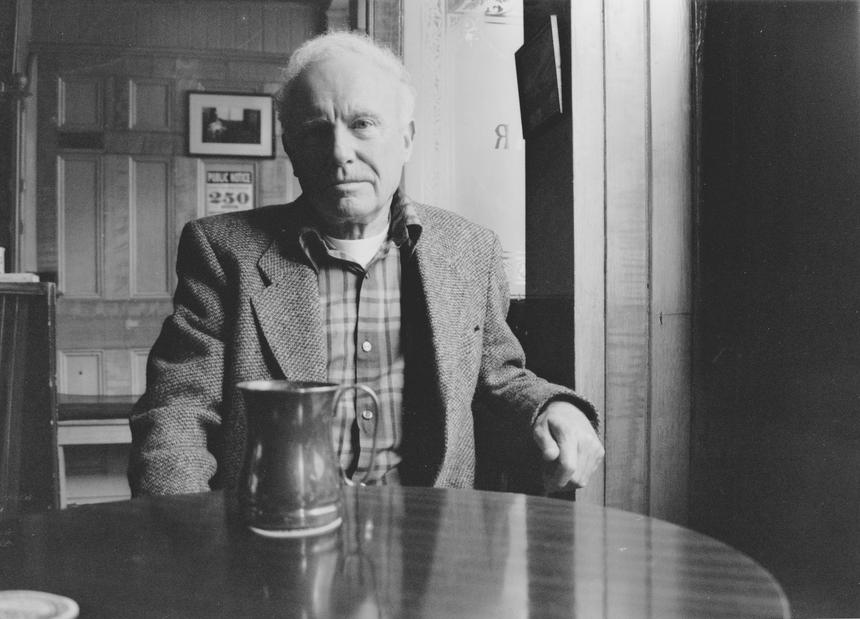
‘Randolph Stow remains the mesmerising absence in the literary landscape. The prodigy of youth, the elusive genius, the writer of the inland, the high priest of demanding modernism—he is all these things, but above all else he is virtually unread, a legend, a shadow, a mirage on the past horizon, a void around which stories multiply and grow.’ Nicolas Rothwell, Australian
Julian Randolph ‘Mick’ Stow was born in Geraldton, Western Australia, in 1935. He attended local schools before boarding at Guildford Grammar in Perth, where the renowned author Kenneth Mackenzie had been a student.
While at university he sent his poems to a British publisher. The resulting collection, Act One, won the Australian Literature Society’s Gold Medal in 1957—as did the prolific young writer’s third novel, To the Islands, the following year. To the Islands also won the 1958 Miles Franklin Literary Award. Stow reworked the novel for a second edition almost twenty-five years later, but never allowed its two predecessors to be republished.
He worked briefly as an anthropologist’s assistant in New Guinea—an experience that subsequently informed Visitants, one of three masterful late novels—then fell seriously ill and returned to Australia. In the 1960s he lectured at universities in Australia and England, and lived in America on a Harkness fellowship. He published his second collection of verse, Outrider; the novel Tourmaline, on which critical opinion was divided; and his most popular fiction, The Merry-Go-Round in the Sea and Midnite.
For years afterwards Stow produced mainly poetry, libretti and reviews. In 1969 he settled permanently in England: first in Suffolk, then in Essex, where he moved in 1981. He received the 1979 Patrick White Award.
Randolph Stow died in 2010, aged seventy-four. A private man, a prodigiously gifted yet intermittently silent author, he has been hailed as ‘the least visible figure of that great twentieth-century triumvirate of Australian novelists whose other members are Patrick White and Christina Stead’.
‘It is a precious moment. For the first time, readers can get an overarching sense of the achievements of an author once regarded as heir to Patrick White. They may also gain some insight into why his reputation later faded. It is a rare pleasure for those of us who are already fans to have these works at our disposal, but, more broadly, the story of Randolph Stow and his legacy is fascinating for what it reveals about the limits of our attention and our affection as a culture.’ Geordie Williamson on the Text Classics editions of Randolph Stow’s work. Read the full article at The Monthly.







